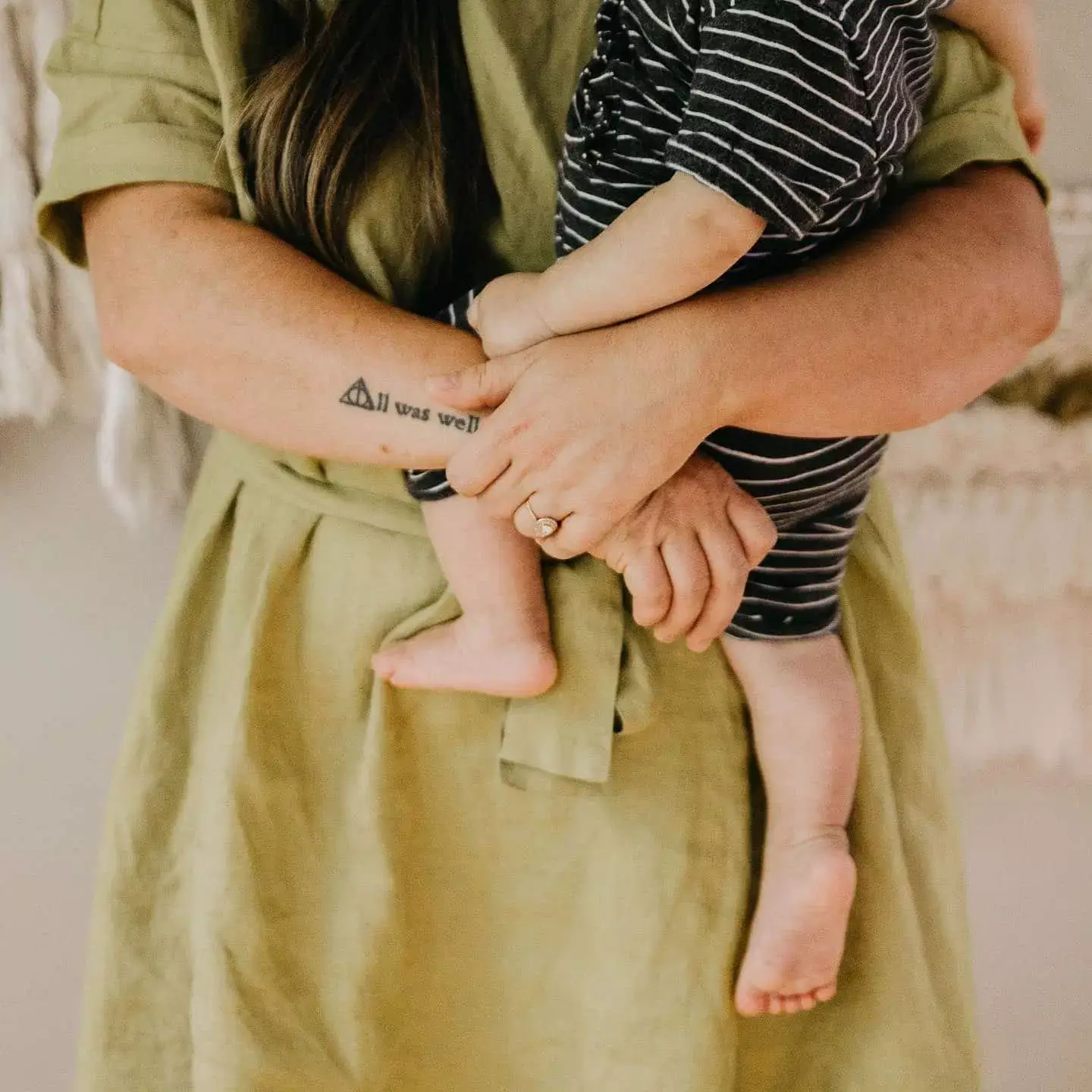In a gut-wrenching moment that no parent should ever have to endure, Ashton Zager, a loving mother and talented fiber artist, publicly shared her unimaginable grief over the loss of her youngest son, Hank. In a raw and emotional Facebook post that quickly resonated with thousands, she revealed that her son had passed away after apparently choking on a seemingly harmless banana muffin. The simple act of snack time transformed into a family’s worst nightmare, reminding us all just how fragile life is, particularly for our littlest ones.
While I cannot help but feel a deep horror at the tragic circumstance, my heart aches not only for Ashton but for all parents who constantly navigate the invisible dangers surrounding their children. The sheer unpredictability of life was starkly highlighted in her story, which has since been shared fervently across social media, garnering over 106,000 responses. Each share underscores how deeply enmeshed this grief is within our collective consciousness—parents everywhere resonate with the palpable terror of losing a child in such a mundane setting.
The Chain of Events
As Ashton described in her heart-wrenching message, a call to 911 was made in frantic hopes that the quick response would lead to a positive outcome. She recounted that her son had never lost consciousness, and thus, they clung to the sliver of hope as they rushed him to the hospital. After intense efforts lasting nearly three hours, it became devastatingly clear that this was not a fairytale ending. In an attempt to remove the obstructing piece of muffin, medical staff discovered that it was not just an ordinary choking incident—it was a tragic accident that would ultimately lead to the loss of a sweet young life.
This narrative stirs a storm of emotions—shock, disbelief, and a profound sadness that lingers longer than we wish to acknowledge. It forces us into a confrontation with our greatest fears as caregivers. These moments hearken back to every parent’s instinct to protect, to safeguard against the world’s perilous unpredictability. The harsh truth is that we can only do so much in shielding our children from misfortune.
The Devastation of Unexpected Death
Ashton portrayed the scene vividly: her anguish while holding her child during the final moments—singing to him and desperately wishing for a different outcome. In her narrative, she touched on feelings of confusion and anger, emotions that are undoubtedly part of the heartache that accompanies losing a loved one, especially a child. The unfathomable question echoes in the minds of many: Why? Why do tragic events like this occur?
She articulated both the love she felt for her son and her struggle to reconcile the situation with faith and understanding. In her words, “I don’t want anyone to tell me there’s a reason for this…”—a raw rejection of the notion that even profound tragedy can be neatly packaged with explanations or hidden blessings. There is an intense honesty here that reflects the battle so many parents face: the desire for meaning in a senseless loss and the desperate wish that they could wake up from this living nightmare.
The Broader Implications
This heartbreaking incident shines a light on a grim fact: choking remains the fourth leading cause of unintentional death for children under age five. Organizations such as the American Academy of Pediatrics (AAP) have long emphasized the pressing need for parental vigilance during mealtimes. Their recommendations—to cut food into smaller, manageable pieces, to supervise young children as they eat, and to steer clear of particularly hazardous foods—become more than just guidelines; they evolve into vital lifelines to help prevent more tragedies.
It’s worth noting how Ashton’s devastating experience could potentially serve as a wake-up call for parents everywhere. While it’s easy to dismiss mundane dangers, the real stories of loss penetrate the heart and awaken our instincts. Each of us carries the weight of responsibility for the tiny lives we nurture, and sometimes those burdens can feel overwhelmingly heavy.
The Power of Community Support
As we observe the outpour of support for Ashton Zager and her family during this profoundly tragic time, we are reminded of the importance of community. It’s moments like these that push us to come together, to share in each other’s grief, and to offer a comforting presence to those who hurt. Each shared story, prayer, and message of love serves as a reminder of our interconnectedness.
As a collective, we can create an environment that fosters open conversations about loss, fear, and grief—conversations that will help us deal with life’s unexpected heartbreaks. No mother should ever feel isolated in her sorrow, and it’s through shared experiences that healing can begin, however slowly it may come.

